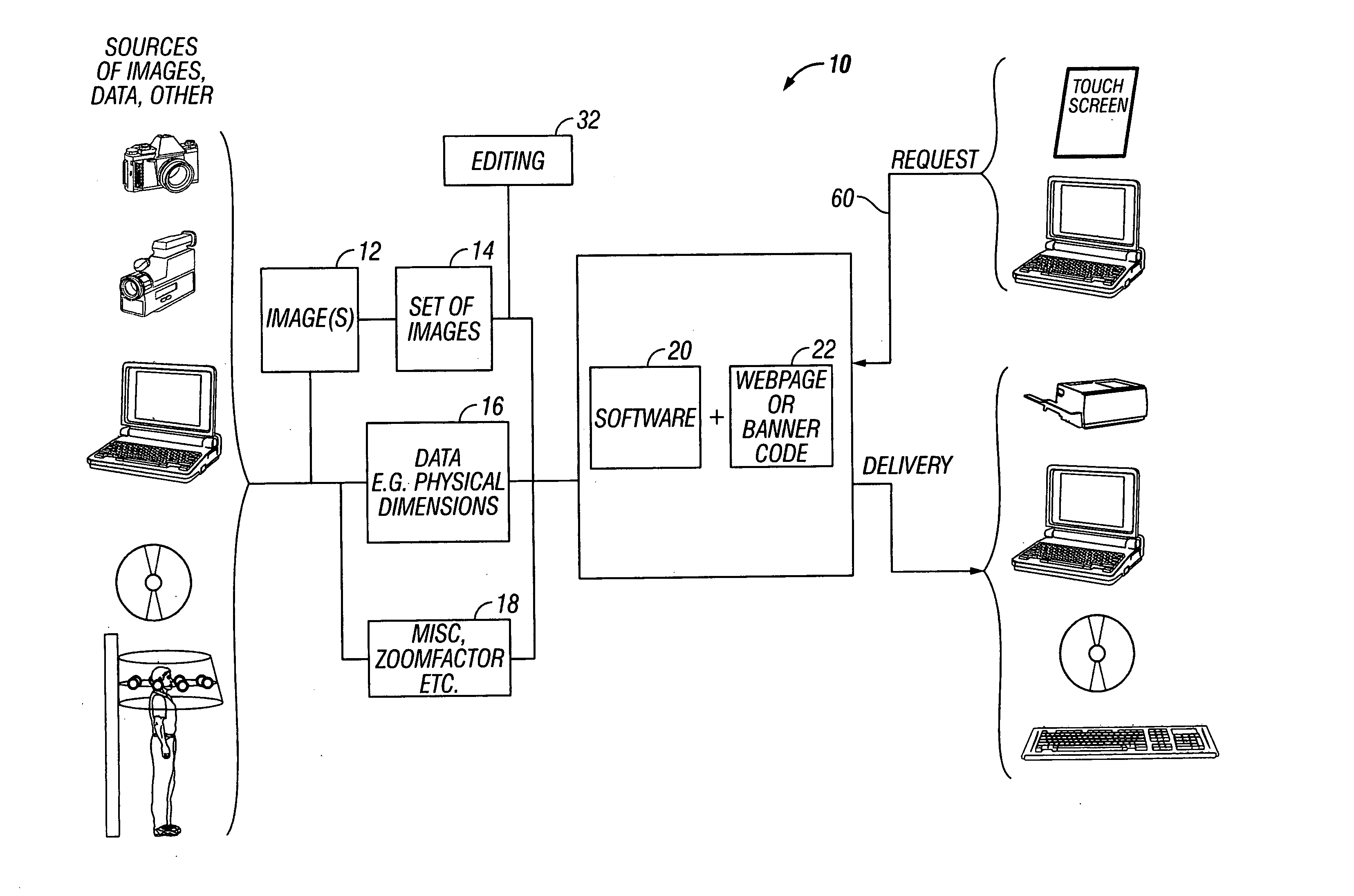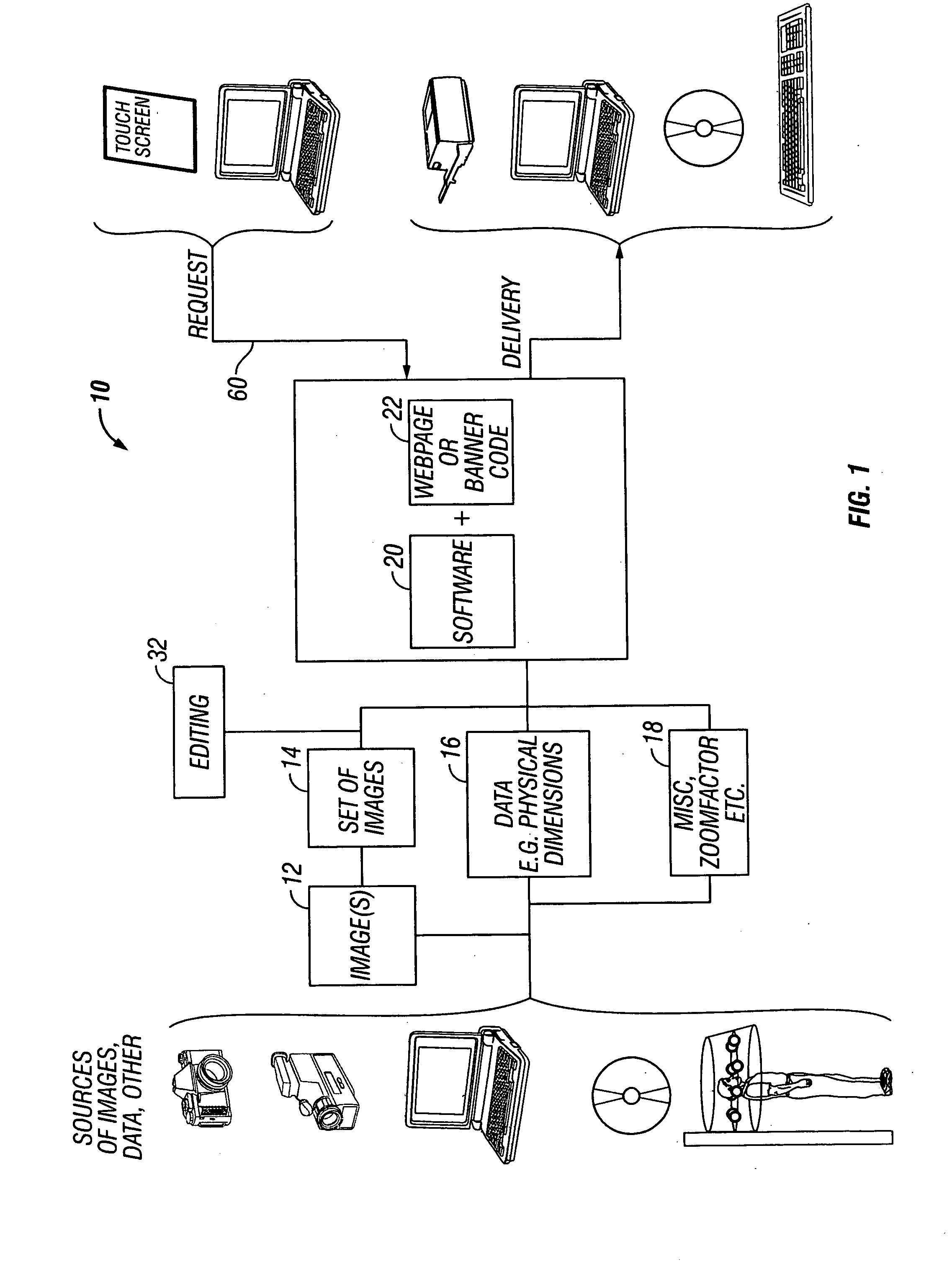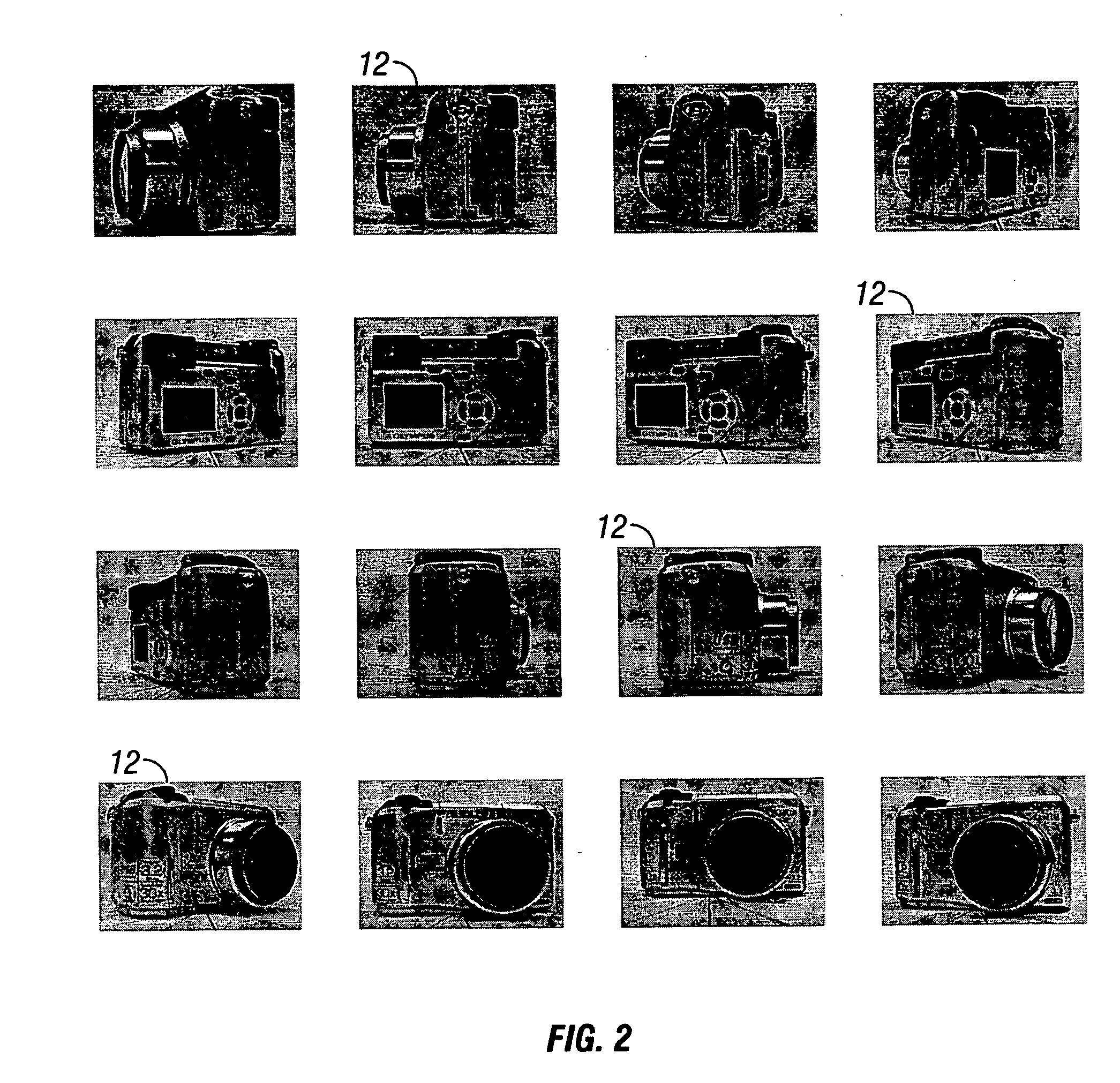System for delivering and enabling interactivity with images
a technology for delivering and enabling interactivity, applied in the field of capturing, processing and displaying images, can solve the problems of content of web pages, longer time it takes to deliver web pages, and lower resolution of delivered images
- Summary
- Abstract
- Description
- Claims
- Application Information
AI Technical Summary
Benefits of technology
Problems solved by technology
Method used
Image
Examples
Embodiment Construction
[0092] Persons with ordinary skill in the art will appreciate that the following description of the present invention is illustrative only and not in any way limiting. Other embodiments of the invention will readily be suggested to such skilled persons having the benefit of this disclosure.
[0093] Referring now to the drawings, wherein like reference numerals denote like or corresponding parts throughout the drawings, and more particularly, to FIG. 1, there is shown a presently preferred embodiment of a system 10 according to the invention. One or more images 12 comprising a set of images 14 are introduced to the system 10 for further processing, in order to make available certain interactive functions with respect to the set of images 14.
[0094] The number of images 12 in a set of images 14 depends, in part, on the level of sophistication of the interactive functions that are to be enabled for that set of images 14. For example, when the interactive functions to be carried out do n...
PUM
 Login to View More
Login to View More Abstract
Description
Claims
Application Information
 Login to View More
Login to View More - R&D
- Intellectual Property
- Life Sciences
- Materials
- Tech Scout
- Unparalleled Data Quality
- Higher Quality Content
- 60% Fewer Hallucinations
Browse by: Latest US Patents, China's latest patents, Technical Efficacy Thesaurus, Application Domain, Technology Topic, Popular Technical Reports.
© 2025 PatSnap. All rights reserved.Legal|Privacy policy|Modern Slavery Act Transparency Statement|Sitemap|About US| Contact US: help@patsnap.com



